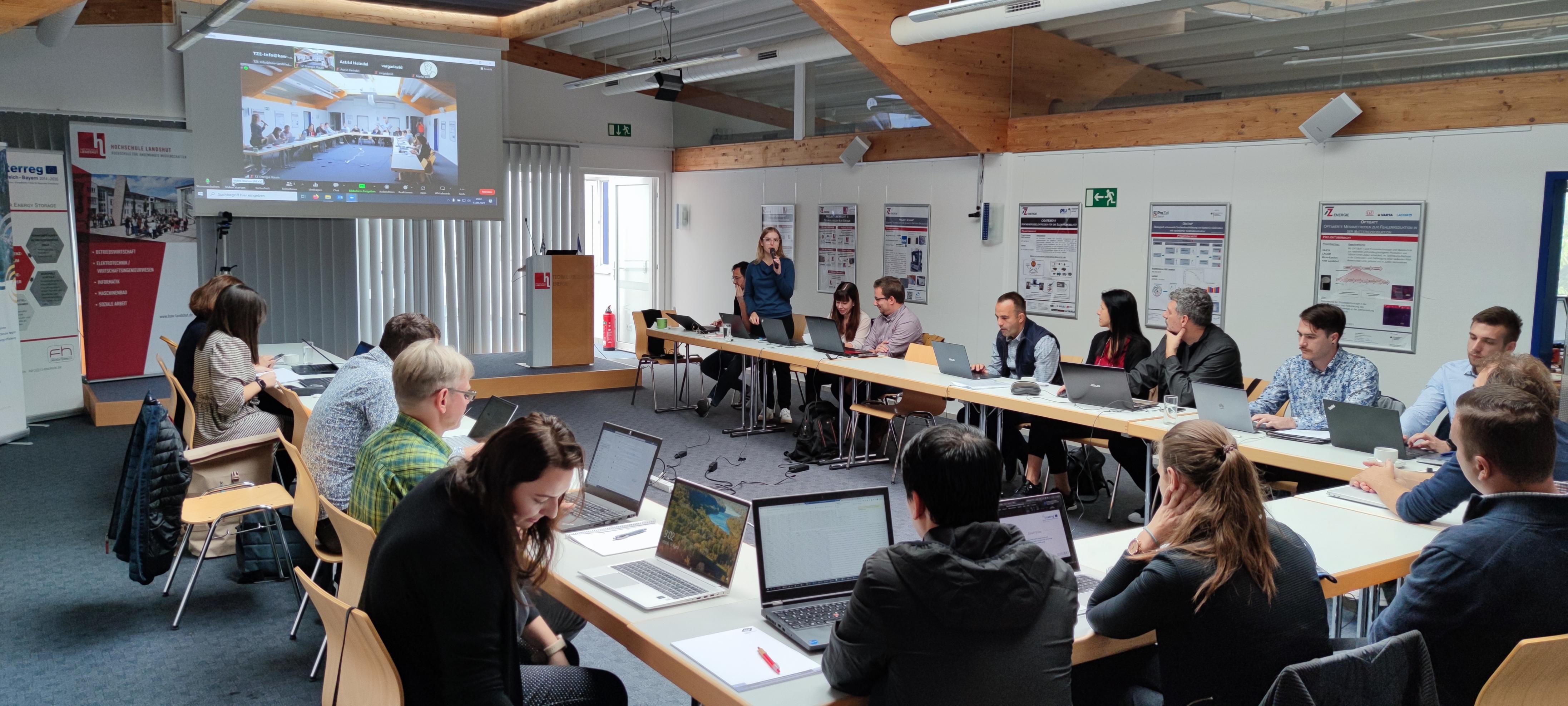DanuP-2-Gas - TRAIN THE TRAINER WORKSHOP – RUHSTORF AN DER ROTT, GERMANY
29-09-2022
On the 13th and 14th September 2022, DanuP-2-Gas representatives of partner organizations gather for Train the trainer workshop. The two day hybrid workshop was hosted by Lead partner, Technology Centre for Energy, University of Applied Sciences Landshut in Ruhstorf an der Rott, Germany.

On the day one of the Train the trainer workshop focus was on presentation of key features and usage of the Optimization tool and Transnational Renewable Energy Atlas combined with other relevant documents like Subsidies catalogue and Pre-feasibility study.
Next day partners discussed about next key steps in the project progress, to successfully reach all planned goals. During the presentation of Ms. Astrid Heindel from project leading organization, partners agreed that there is still a lot of work to be done, and that it is very important to stay involved and active in the next three months. For the conclusion of the workshop partners participated at the guided tour through the laboratories of the Technology Centre for Energy.
After the workshop partners felt very well prepared and motivated to share their knowledge forward on their national workshops, which will be organized separately per country in the final three months of the project.
The next time partners meet each othe/image%201.jpeg) r will be at the Final meeting that will be combined with Stakeholder conference, and it is planned for the end of November in Budapest.
r will be at the Final meeting that will be combined with Stakeholder conference, and it is planned for the end of November in Budapest.
To find out more about project progress subscribe to the Danup-2-Gas newsletter and follow us on project social media accounts (Facebook, Twitter).
______________________________________________________________________________________________________________________________
BACKGROUND
Despite having immense potential for utilization of renewable energy, the Danube region remains critically dependant on energy imports. Based on the current trends related to investment in sustainable energy as well as energy efficiency, the progress of the transition will not be sufficient to meet ambitious climate targets set forth by the international community. Moreover, there are significant technical and economic challenges related to maintaining resilient supply of energy at a growing share of intermittent generation sources, that go even beyond the potential increase of energy poverty especially in economically less developed areas of the region. In this context, effective sector coupling, and circular carbon management offer a feasible approach through which these challenges can be effectively addressed throughout the energy supply chain. Making use of existing opportunities related to low-carbon technologies and utilization of existing infrastructure for storage, the Danube region is able to simultaneously progress its development of critical areas, ranging from energy supply, environment protection to research and development, knowledge transfer and skill development as well as other important socioeconomic factors signifying an increased quality of life. Nevertheless, doing so will require a coordinated multi-disciplinary action of relevant stakeholders approaching the challenges on a transnational level.
ABOUT THE PROJECT
DanuP-2-Gas (Innovative model to drive energy security and diversity in the Danube Region via combination of bioenergy with surplus renewable energy) is meant to advance transnational energy planning by promoting generation and storage strategies for renewables in the Danube Region by coupling the electric power, biomass and gas sectors. It brings together key stakeholders from 12 countries from the region and is co-financed under the Interreg Danube Transnational Programme. Visit dtp.interreg-danube.eu/danup-2-gas for more information.
